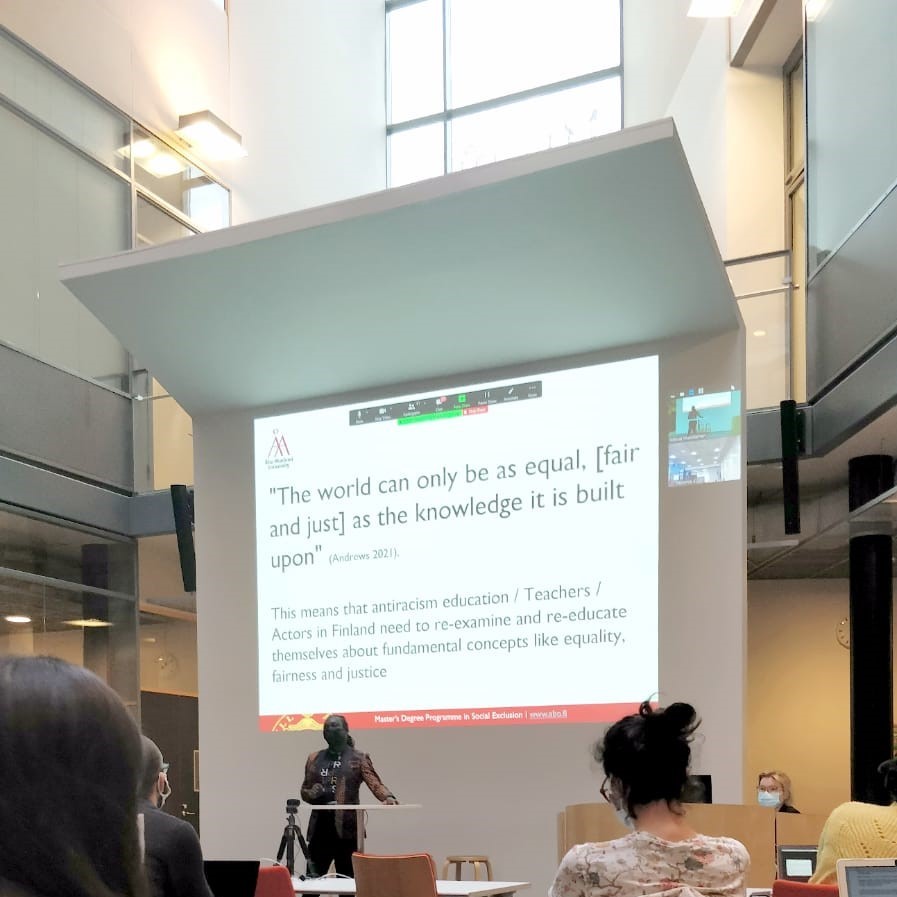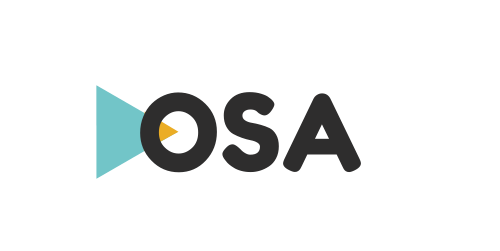10 November 2021: Worklife Utopia

Worklife Utopia is a one-day online event organized by OSA in collaboration with Condus ry, which aims to bring together different stakeholders from the field of education to discuss the current situation in terms of worklife equity and what can be improved in making this important value a priority. The main topics discussed will be the situation of immigrant teachers in the context of internationalization of education, the inclusion of teachers belonging to sexual minorities, and that of teachers with disabilities. The event will take place on the 10th of November from 9am to 4.30pm.
Schedule
9.00 – Conference (representatives of the University of Helsinki, Finnish Ministry of Education and Culture, schools, and private actors will focus on the equity of employees in the field of education and what can be improved)
10.30 – Break
11.00 – Workshops (participants will choose which workshop to attend)
- LGBTQ + Inclusiveness, facilitated by Qaareva
- Working in a Diverse Team
- DEI Awareness
12.00 – Lunch break
13.30 – Meet and Greet (Meet different student organizations and discuss aspects of employee equity and other matters related to their associations’ goals)
14.30 – Stretch break
15.00 – Panel Discussion (Representatives of sexual minorities community, teachers with disabilities community, Finnish National Agency of Education and researchers will discuss the actions that would need to be undertaken to promote employee equity in education)
If you are interested in taking part in the event, please register here and follow updates on the speakers on the OSA and Condus social media. The Facebook event can be accessed here.



Antiracism education: Making Education Work for All
In the beginning of October of 2021, OSA organized a project called Antiracism Education: Making Education Work for All. The project consisted of three separate sessions: an introductory lecture and two workshops. The purpose of the project was to allow students at the Changing Education master’s programme (and others) to familiarize themselves with the core concepts and theories of antiracism education, as well as discuss why and in which ways antiracism should be implemented practically. Overall, the project engaged over 100 participants.
Education is only truly equitable, accessible, and of high quality if it provides everyone with the opportunity to flourish. Unfortunately, that it not currently the case. There are many obstacles preventing children from accessing a good education and promoting their learning. In Finland, one such obstacle is racial and ethnic discrimination within the education system. Studies have shown that racist attitudes among students and educators have been on the rise in Finland (e.g. Myllyniemi, 2014), and that students who face such discrimination suffer not only in regard to their learning, but also mental health (Verkuyten & Thijs, 2002). Antiracism education has been lifted as a crucial part of the solution to these issues. Unfortunately, antiracism education is lacking in schools, as well as in teacher education. OSA’s Antiracism Education: Making Education Work for All-project aimed to provide participants with an insight into what antiracism education is and how it can be implemented.
The first session of the project was an open lecture held by Dr. Aminkeng Alemanji. Dr. Alemanji is the Head of the Master’s Programme in Social Exclusion at Åbo Akademi. At the University of Helsinki, he is part of the KNOWACT project, where the research team investigates disobedient knowledge production in social movements and activism. His research focuses on the intersections of race, racism, and antiracism within education. Much of his work investigates these themes in the Finnish context and brings up that despite the reluctance to talk about race in Finland, examples of structural racism exist and should be addressed. In his lecture, Dr. Alemanji addressed the core concepts of antiracism education, elaborated on the practice of antiracism education in the Finnish context, and highlighted its importance for a truly equitable education system.

The following two workshop sessions were held by Akunna Onwen. Onwen is an expert working on issues of equality and antiracism from different perspectives. She is a member of the Good Hair Day collective, an antiracist movement that tackles racism by community care, joy, and hope. Currently, she is working for the Anti-Racist Forum as a project manager developing a hate crime online reporting tool. In the past year, she has also worked at the Peace Education Institute as an expert coordinating, planning, and conducting over 150 trainings for educators on antiracism. Onwen also freelances as consultant, facilitator and educator on the themes of non-discrimination, diversity, antiracism, representation, dialo,g and privileges. Onwen has been a guest lecturer at the University of Helsinki and The University of the Arts Helsinki. During the workshops, Onwen guided discussions around Finnishness, privilege, representation, and emotions. She also advocated for continued open discussions around race and racism, encouraging everybody to further educate themselves on these issues in spite of a fear of making mistakes.
We at OSA recognize that as future teachers, policymakers, and researchers, we have a responsibility to further educate ourselves on how to promote quality education that all students can benefit from, regardless of their background or circumstance. We are grateful to the Student Union for awarding us a project-grant through the Innovative Learning Project. We are also incredibly thankful for the encouragement and support we received from the Changing Education staff during the planning and implementation of this project. We are proud that we were able to organize a series of sessions on antiracism education, which hopefully will spark further discussions around this topic at the Changing Education programme, Faculty of Educational Sciences, the University of Helsinki, and beyond.
Text by Alexandra Biris
References
Myllyniemi, S. (2014). (Ed.). Ihmisarvoinen nuoruus. Nuorisobarometri 2014. Helsinki: Opetus- ja kulttuuriministeriö & Nuorisoasiain neuvottelukunta & Nuorisotutkimusverkosto.
Verkuyten, M., & Thijs, J. (2002). Racist victimization among children in the Netherlands: The effect of ethnic group and school. Ethnic and Racial Studies, 25(2), 310-331.

